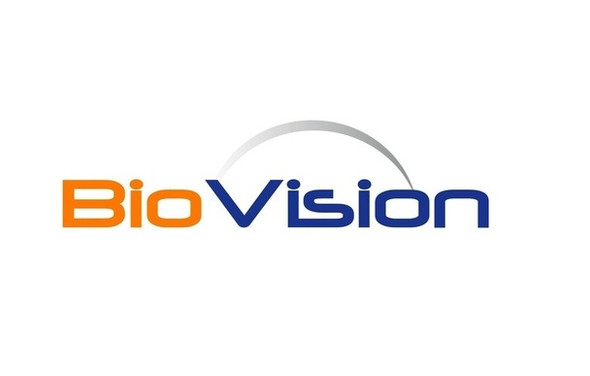Biovision
Human CellExp™ EphA2 (Active), Human Recombinant
- SKU:
- 26-P1726
- Availability:
- Usually Shipped in 5 Working Days
- Storage Temperature:
- -20°C
- Shipping Conditions:
- Gel Pack
- Shelf Life:
- 12 months
Description
Biomolecule/Target: N/A
Synonyms: EPH Receptor A2; Tyrosine-Protein Kinase Receptor ECK; Ephrin Type-A Receptor 2; ECK; CTRCT6; ARCC2; CTPP1; CTPA
Alternates names: EPH Receptor A2; Tyrosine-Protein Kinase Receptor ECK; Ephrin Type-A Receptor 2; ECK; CTRCT6; ARCC2; CTPP1; CTPA
Taglines: Implicated in mediating nervous system development
Taglines: USA
Country of Animal Origin: USA
NCBI Gene ID #.: 1969
NCBI Gene Symbol: N/A
Gene Source: Human
Accession #: P29317
Recombinant: True
Source: Human Cells
Purity by SDS-PAGE #: > 95% by SDS-PAGE
Assay: N/A
Purity: N/A
Assay #2: N/A
Endotoxin Level: < 1.0 EU per µg as determined by the LAL method
Activity (Specifications/test method): N/A
Biological activity: Immobilized Human EphA2-His at 4 μg/ml (100 μl/well) can bind Human EFNA1-Fc. The ED50 of Human EphA2-His is 0.03 μg/ml
Results: N/A
Binding Capacity: N/A
Unit Definition: N/A
Molecular Weight: 57.0 kDa predicted, 65-75 kDa observed
Concentration: N/A
Appearance: Lyophilized protein
Physical form description: Lyophilized powder
Reconstitution Instructions: N/A
Background Information: The Ephrin Type-A Receptor 2 (EphA2) is a member of the ephrin receptor subfamily of protein-tyrosine kinases, which are implicated in mediating nervous system development. EphA2 binds to membrane-bound ephrin-A family ligands residing on adjacent cells, leading to contact-depending bidirectional signaling between the neighboring cells. The activation through the ligand-receptor association regulates cell migration, integrin-mediated adhesion, proliferation, and cell differentiation. EphA2 is involved in many physiological processes, including angiogenesis, early hindbrain development, and epithelial proliferation and branching morphogenesis during mammary gland development. Mutations in EphA2 are associated with certain genetic cataract disorders as well as cancer development and progression.
Amino acid sequence: Ala 24 to Asn 534 with C-terminal 6xHis Tag
Handling: Centrifuge the vial prior to opening.
Usage: For Research Use Only! Not to be used in humans






